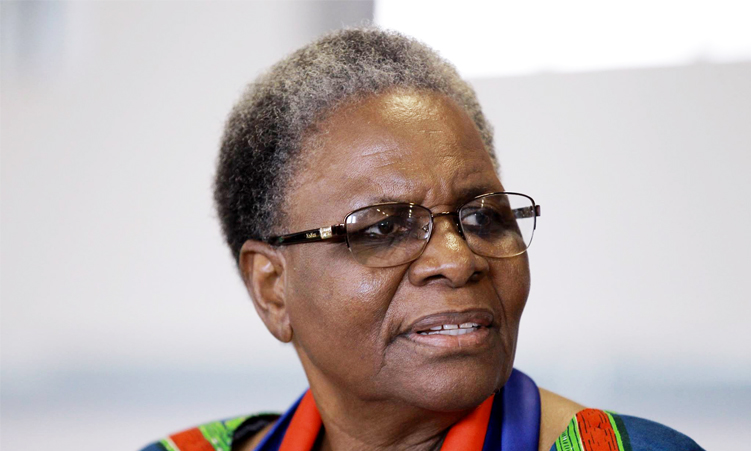A PARALYSED, unemployed, sickly woman and thousands of Goreangab residents will take the Windhoek municipality to court in a revolutionary human rights case aimed at compelling the State to provide water and sanitation to people who cannot afford it.
Susanna Nowases and at least 2 000 others have engaged the services of the Legal Assistance Centre (LAC) in what could be Namibia’s biggest case – akin to class action law suits in the United States. The test case to enforce constitutional rights will be lodged with the High Court in the next two weeks, Norman Tjombe, the Director of the LAC, Norman Tjombe said.The lawsuit comes years after the Windhoek City Council shut down water the water supply and halted several other services.More than 90 per cent of the households in the 12 000 to 15 000 strong Goreangab community has, since 1996, accumulated debts of between N$6 000 and N$36 000 per consumer, said Tjombe.The total debt is estimated conservatively at more than N$ 500 000 The people do not deny owing the municipality money.But the burden will get heavier from next month on when the water tariffs will rise by 26 percent.”It’s not a joke, I mean, the poverty is real out there.It is a sad reality that there are people who cannot afford to pay for water.The overwhelming majority of people are unemployed with no source of income whatsoever,” said Tjombe.The Windhoek municipality had been asked on several occasions to reconnect the water to people’s houses but has demanded that they each pay at least 30 percent of the outstanding bills and must continue to pay the arrears together with the new bill.The municipality has gone so far as to literally cut off the water pipes far away from the houses to prevent illegal connections and to make sure they ” … don’t get a drop of water”.”The municipality is acting unreasonably,” Tjombe said.A lack of access to water had ” … serious human rights implications for the residents of Goreangab”.The rights to life, dignity and to own property are the first to be violated as a result.Parents of children who cannot afford water take them out of schools for the same reasons, said Tjombe.Tjombe referred to Nowases as the classic illustration of how her and her family’s rights had been violated.Nowases, who is suffering from tuberculosis, was given beans to cook for herself and her family.The paralysed woman could not cook because she did not have water.”She could not take the tablets for TB because she did not eat.She could not eat because she did not have water to cook.Eventually, after three days of hunger, she took the tablet and ended up in the acute care unit of the hospital.”Tjombe said the unavailability of water could lead to deaths and lack of hygiene.When children crawl and play in human faeces caused by the absence of toilets, their lives are “dehumanised” and dignity violated.While unable to pay for the municipal bill, some have already been notified of eviction orders from their plots and could lose the properties they had bought from the city.Such a development would be sending the people of Goreangab into a vicious cycle of poverty.After producing a notice issued last month that her water and electricity will be cut off, Christina Xoagus, one of the first settlers of Goreangab, said yesterday: “I am just waiting to be evicted.They cut the water in 1999 already.I never had electricity.”The LAC, said Tjombe, will go to court to “compel” the City to reconnect water to the households and to ” … provide the minimum amount of water”, as well as to set up temporary toilets.”We are not saying that everybody must have free water, but those who cannot afford [it] must get the minimum necessary for hygiene, cooking and drinking and at no charge.”That is what is ultimately envisaged by our Constitution: a caring and compassionate society that cares for its needy citizens.”In a similar case in South Africa the courts forced the municipality to provide basic housing and water.Ipupa Davids of the Windhoek municipality said the council has no policy of providing free water.”Our water is not free.If the consumer does not pay then we implement the credit control procedures,” said Davids.She said it takes up to a year of warnings before water is cut off.Xoagus said most of the affected households have been dependent on the few neighbours whose water still runs.Often they must pay a fee.The test case to enforce constitutional rights will be lodged with the High Court in the next two weeks, Norman Tjombe, the Director of the LAC, Norman Tjombe said.The lawsuit comes years after the Windhoek City Council shut down water the water supply and halted several other services.More than 90 per cent of the households in the 12 000 to 15 000 strong Goreangab community has, since 1996, accumulated debts of between N$6 000 and N$36 000 per consumer, said Tjombe.The total debt is estimated conservatively at more than N$ 500 000 The people do not deny owing the municipality money.But the burden will get heavier from next month on when the water tariffs will rise by 26 percent.”It’s not a joke, I mean, the poverty is real out there.It is a sad reality that there are people who cannot afford to pay for water.The overwhelming majority of people are unemployed with no source of income whatsoever,” said Tjombe.The Windhoek municipality had been asked on several occasions to reconnect the water to people’s houses but has demanded that they each pay at least 30 percent of the outstanding bills and must continue to pay the arrears together with the new bill.The municipality has gone so far as to literally cut off the water pipes far away from the houses to prevent illegal connections and to make sure they ” … don’t get a drop of water”.”The municipality is acting unreasonably,” Tjombe said.A lack of access to water had ” … serious human rights implications for the residents of Goreangab”.The rights to life, dignity and to own property are the first to be violated as a result.Parents of children who cannot afford water take them out of schools for the same reasons, said Tjombe.Tjombe referred to Nowases as the classic illustration of how her and her family’s rights had been violated.Nowases, who is suffering from tuberculosis, was given beans to cook for herself and her family.The paralysed woman could not cook because she did not have water.”She could not take the tablets for TB because she did not eat.She could not eat because she did not have water to cook.Eventually, after three days of hunger, she took the tablet and ended up in the acute care unit of the hospital.”Tjombe said the unavailability of water could lead to deaths and lack of hygiene.When children crawl and play in human faeces caused by the absence of toilets, their lives are “dehumanised” and dignity violated.While unable to pay for the municipal bill, some have already been notified of eviction orders from their plots and could lose the properties they had bought from the city.Such a development would be sending the people of Goreangab into a vicious cycle of poverty.After producing a notice issued last month that her water and electricity will be cut off, Christina Xoagus, one of the first settlers of Goreangab, said yesterday: “I am just waiting to be evicted.They cut the water in 1999 already.I never had electricity.”The LAC, said Tjombe, will go to court to “compel” the City to reconnect water to the households and to ” … provide the minimum amount of water”, as well as to set up temporary toilets.”We are not saying that everybody must have free water, but those who cannot afford [it] must get the minimum necessary for hygiene, cooking and drinking and at no charge.”That is what is ultimately envisaged by our Constitution: a caring and compassionate society that cares for its needy citizens.”In a similar case in South Africa the courts forced the municipality to provide basic housing and water.Ipupa Davids of the Windhoek municipality said the council has no policy of providing free water.”Our water is not free.If the consumer does not pay then we implement the credit control procedures,” said Davids.She said it takes up to a year of warnings before water is cut off.Xoagus said most of the affected households have been dependent on the few neighbours whose water still runs.Often they must pay a fee.
Stay informed with The Namibian – your source for credible journalism. Get in-depth reporting and opinions for
only N$85 a month. Invest in journalism, invest in democracy –
Subscribe Now!






